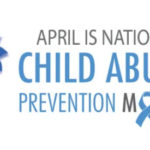UB School of Public Health and Health Professions adds programs in nutrition science, environmental health sciences, coaching

UB’s new bachelor’s degree program in nutrition science will explore the role that food and diet plays in promoting and maintaining optimal health and preventing disease. Photo: Meredith Forrest Kulwicki
BUFFALO, N.Y. — The University at Buffalo’s School of Public Health and Health Professions is adding new degree programs in nutrition science and environmental health sciences, in addition to a coaching minor.
All three new programs have received the required New York State Education Department approvals and are open for students to apply.
“There is a great interest in these new areas of study. We are working to meet the demands of our students,” says Jean Wactawski-Wende, PhD, SUNY Distinguished Professor and dean of the School of Public Health and Health Professions. “These programs will equip our students with the knowledge and experiences necessary to help improve health in our communities.”
Bachelor’s in nutrition science
The bachelor’s degree program in nutrition science will prepare students for a variety of career pathways, including dietetics and food science, and for entry into dietetics and other health profession programs. The bachelor degree program builds on the nutrition minor that has been a popular area of study at UB for many years.
Nutrition science is a growing field that encompasses the role that food and diet plays in promoting and maintaining optimal health and preventing disease, says Heather Kearns, undergraduate program director for the exercise science program in the School of Public Health and Health Professions. Nutrition science includes the concept known as culinary nutrition, which examines the impact that nutrients, diet and food have on treating and managing chronic diseases and conditions, adds Kearns.
The four-year curriculum includes the foundational sciences of chemistry, biochemistry, and biology, as well as nutrition courses in human health and disease. The program provides flexibility in the final year to specialize in exercise science, sport nutrition or public health. Students will be exposed to the interdisciplinary nature of the field of nutrition science, and will gain the knowledge and skills necessary to understand the complex interactions between nutrition and human health.
The nutrition science program was designed so that students can apply to Future Education Model (FEM) programs in Dietetics, accredited by the Accreditation Council for Education in Nutrition and Dietetics. FEM programs are the new model for completing the required education to sit for the Registered Dietician exam.
MS in environmental health sciences
The MS in environmental health sciences is a two-year, research-based degree program for students seeking specialized training in the practice of environmental health, environmental toxicology, exposure science and environmental epidemiology.
Environmental health is the science and practice of preventing human injury and illness, and promoting wellbeing by identifying and evaluating hazardous agents in the environment and their sources, and limiting exposures to hazardous physical, chemical and biological agents in air, water, soil or food that may adversely affect human health.
This program will prepare students for future careers as environmental health research scientists, professionals or specialists, and/or continuing graduate study as a doctoral student in relevant scientific fields.
While it is being offered in the School of Public Health and Health Professions, the environmental health science program also includes one required class on toxicology principles and practice offered in the Department of Pharmacology and Toxicology in the Jacobs School of Medicine and Biomedical Sciences.
Western New York is full of diverse environmental health challenges, including nearly 800 hazardous waste sites in Erie, Niagara and Cattaraugus counties alone, notes James Olson, PhD, UB Distinguished Professor and professor of epidemiology and environmental health, and pharmacology and toxicology in the Jacobs School of Medicine and Biomedical Sciences, and director of the Environmental Health Sciences Division in the School of Public Health and Health Professions. Olson is a co-director of the program along with Xuefeng Ren, PhD, MD, an associate professor of epidemiology and environmental health at UB.
In recent years, environmental health issues, ranging from Great Lakes contaminants to air pollution associated with high traffic at the Peace Bridge and the Tonawanda Coke facility, have gained attention locally and nationally.
Although air quality in Western New York has improved in more recent years, there remains a great need to not only characterize current environmental exposures but also to reconstruct historical air pollution data in Western New York. Cumulative past and current environmental exposures from multiple sources (air, water, soil) remain a potential concern for the health of current and future generations.
UB faculty in the program will prepare students to address the ever-growing number of environmental concerns that impact the health of all populations.
Coaching minor
The coaching minor is being offered by the Department of Exercise and Nutrition Sciences but is open to all UB undergraduates interested in careers related to coaching in summer youth sports programs, community sports programs, school athletics or intercollegiate athletics. However, it does not lead to New York State coaching credentials.
In addition, the minor builds on the idea that coaches are educators and leaders. The minor focuses on competencies and skills, such as CPR and first aid, sports nutrition, sports science, performance psychology, injury prevention and organizational issues specific to coaching in school, community and collegiate sports programs.
Each course in the curriculum provides excellent opportunities for networking and leadership skills development and experience, which are essential for every student no matter their field of study.












